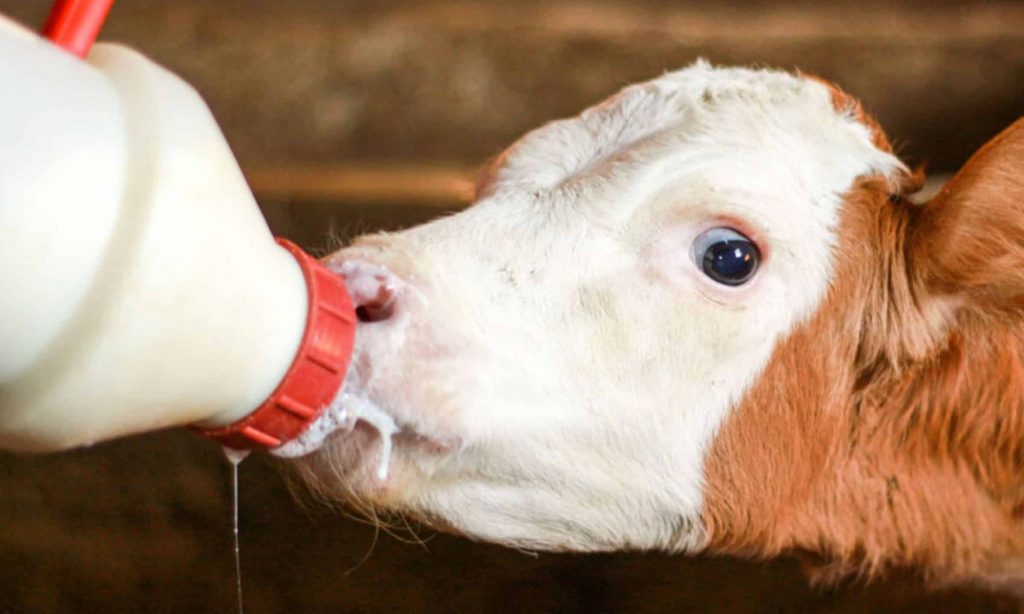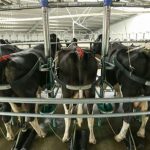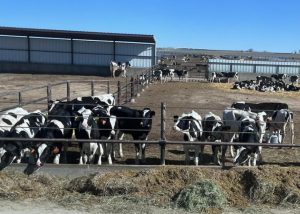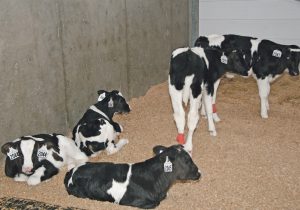
Past research work has shown that feeding calves restricted amounts of milk slows their development, but little research has addressed what calves feel and how hungry they are when under feed restrictions.
Scientists from the Faculty of Land and Food Systems at the University of British Columbia and the University of Bristol’s Langford Veterinary School assessed the effect of milk restrictions on calf cognition in 2 experiments using a modified hole-board test.

The team expected that the sudden reduction of milk allowance, mimicking what would happen at weaning, would be associated with the calves being too hungry to focus on a learning task.
To investigate this, they used a test where calves had to remember the location of 4 milk-filled bottles among 15 bottles. They explored whether a sudden milk restriction (reduced from 12 to 6 litres per day) would negatively affect the calves’ capacity to remember where the rewarded bottle is and whether it would disrupt the capacity to re-learn after changing locations of the bottles.
Consistent with the idea that milk-fed calves experience hunger when the milk supply declines, the study found that cognitive performance dropped when milk allowance was reduced by half. The research also showed that calves fed restricted quantities of milk were slower to learn new rules.
Although the results do not provide direct evidence that calves felt too hungry to focus, the effect on cognition is consistent with the negative experience of feeling hunger. The type of studies can help identify farm animal care practices that when mitigated led to improved welfare for many dairy calves.






















